Depression and the Menopause

The menopause brings many hormonal changes, which for many women, means experiencing physical symptoms such as hot flushes and night sweats. However, there are emotional symptoms that cannot be so easily seen, such as the internal distress towards body image, sexuality, infertility and ageing, and trigger mood swings or, even bouts of depression.
It is extremely important to create awareness around the cause and intensity of depression, this can help you to connect to your own state of emotional wellbeing and how its affecting your mental and physical state in the menopause.
What is depression?
Generally, depression or ‘being depressed’ can be defined in three different ways:
A mood - This type of depression is familiar to us all, its typically when we are feeling low, heavy, blue or sad. It is the type of depressed feeling that tends to pass naturally.
A symptom - This type of depression is based on our emotional reactions to life events (work, relationships, deaths etc.) This tends to be a feeling of depression that needs time and understanding. Although, if the reactive state becomes more chronic and continues on for two years or more without finding a feeling of completion, it can move into a more official diagnosis.
A diagnosis - This type of depression is labelled as disorder, which means that there is some sort of chemical imbalance in the brain that requires more intensive care, focus and treatment.
What does depression tend to feel like?
There are some easy to recognise signs and symptoms of depression such as:
• Less enthusiasm and interest in activities
• A change in appetite (over-eating, under-eating)
• Change in sleep patterns (over-sleeping, under-sleeping)
• Fatigue or loss of energy
• A lack of concentration
• Excessive feelings of guilt or worthlessness
• Extreme restlessness and irritability
• Thoughts of suicide
Why does depression happen in the menopause?
Mood swings and feeling depressed is fairly common in the menopause, particularly in the perimenopause phase as this is when oestrogen is fluctuating and falling, which brings the feelings of imbalance and insecurity within our own body and cause us to become more emotional, anxious, irritable, lower energy and less motivated.
Those who have a history of diagnosed depression, a history of PMS or suffered from postnatal depression, tend to be more vulnerable to emotional imbalances in the menopause, whether that be acute or major menopause blues. This is because the body is more sensitive to changing levels of hormones.
How can I treat depression?
- Do not suffer in silence. The opposite of depression is connection, so it is really important to connect to your emotional state and speak up on your feelings to someone trusted, personally or using professional therapy.
- Consider ways to improve your diet to a more wholesome intake of foods such as fruits, vegetables, grains, greens, beans etc. These all help to produce the ‘happy hormone’ in our gut called serotonin, as well as high energy levels. Limit or avoid processed products.
- Limit alcohol intake and stop smoking
- Participate in regular exercise to get oxygen to your mind and body; this is a great mood booster and really beneficial to your body, especially at this significant time in your life.
- Make time for fun: go to a movie, travel somewhere new, try a brand new activity that excites you.
- For mood and symptom based depression, St John’s wort is said to be a fantastic remedy for depression.
- Prevent daily overwhelm as much as you can. Prioritise your time and break down larger goals into smaller tasks.
- Be patient and compassionate with yourself. Feeling better takes time.
- Leave big decisions till a time when you feel better, and make sure you discuss any life changes with others, who can respect your own best interests.
- Make time for yourself, and recharge with these relaxation ideas.
If you need further support and guidance for depression, make an appointment to have a discussion with your doctor or a mental/emotional health professional.
Disclaimer:
Become™️ has a wonderful team of experts who all helped in the writing of this content. The opinions expressed within this page are the opinions of many people we asked, and from information we researched online. Become™️ is not responsible for the accuracy, completeness, suitability, or validity of any information on this page. All information is provided on an as-is basis.



